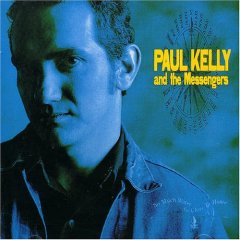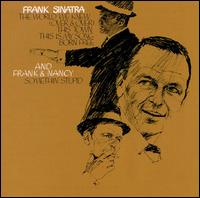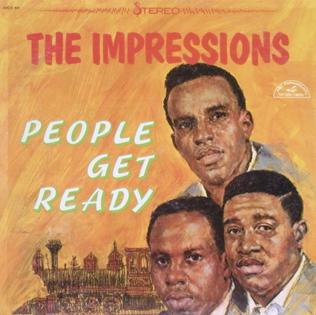
Robert Clark Seger is an American singer, songwriter, and musician. As a locally successful Detroit-area artist, he performed and recorded as Bob Seger and the Last Heard and Bob Seger System throughout the 1960s, breaking through with his first album, Ramblin' Gamblin' Man in 1968. By the early 1970s, he had dropped the 'System' from his recordings and continued to strive for broader success with various other bands. In 1973, he put together the Silver Bullet Band, with a group of Detroit-area musicians, with whom he became most successful on the national level with the album Live Bullet (1976), recorded live with the Silver Bullet Band in 1975 at Cobo Hall in Detroit, Michigan. In 1976, he achieved a national breakout with the studio album Night Moves. On his studio albums, he also worked extensively with the Alabama-based Muscle Shoals Rhythm Section, which appeared on several of Seger's best-selling singles and albums.

So Much Water So Close to Home is an album by Australian rock band Paul Kelly and the Messengers and was originally released in August 1989. The title comes from a short story of the same name by author Raymond Carver. Carver died in August 1988. Kelly co-wrote the score for the 2006 Australian film Jindabyne, which was also based on the same story. The entire album was recorded in the U.S. with producer Scott Litt, best known for his work with R.E.M.. It was released on Mushroom/White Records in Australia and A&M Records in the United States. The album peaked at #10 on the ARIA album charts, but none of its singles, "Sweet Guy", "Careless" and "Most Wanted Man in the World" had any Top 40 chart success. All tracks for the album were written by Kelly, who provided vocals, guitar and harmonica and also co-produced with Litt.

"Subterranean Homesick Blues" is a song by Bob Dylan, recorded on January 14, 1965, and released as a single by Columbia Records, catalogue number 43242, on March 8. It was the lead track on the album Bringing It All Back Home, released some two weeks later. It was Dylan's first Top 40 hit in the United States, peaking at number 39 on the Billboard Hot 100. It also entered the Top 10 of the UK Singles Chart. The song has subsequently been reissued on numerous compilations, the first being the 1967 singles compilation Bob Dylan's Greatest Hits. One of Dylan's first electric recordings, "Subterranean Homesick Blues" is also notable for its innovative film clip, which first appeared in D. A. Pennebaker's documentary Dont Look Back. An acoustic version of the song, recorded the day before the single, was released on The Bootleg Series Volumes 1–3 1961–1991.
The Byrds is a four-CD box set by the American rock band the Byrds. It features music that had previously been released between the mid-1960s and early 1970s, along with a number of previously unreleased tracks and some new recordings from 1990. The box set was issued on October 19, 1990 by Columbia/Legacy and reached number 151 on the Billboard albums chart.

The World We Knew, also known as Frank Sinatra, is a 1967 studio album by American singer Frank Sinatra.

"People Get Ready" is a 1965 single by the Impressions, and the title track from the People Get Ready album. The single is the group's best-known hit, reaching number-three on the Billboard R&B chart and number 14 on the Billboard Hot 100. The gospel-influenced track was a Curtis Mayfield composition that displayed the growing sense of social and political awareness in his writing.
"Mediate" is a song by INXS from their 1987 album, Kick. On the album, the song segues from their big hit single, "Need You Tonight." The song has the distinction of having almost every line rhyme with the word "ate".

A Night at Birdland Vol. 1 is a 1954 release by jazz artist Art Blakey, and a quintet which featured Clifford Brown, Lou Donaldson, Horace Silver and Curly Russell. It was first released by Blue Note Records as a 10" LP and then as a 12" LP containing material from the second 10" album. It was reissued for the first time on CD in 1987 with two additional tracks, previously released on a 2 LP Compilation in 1975 called Live Messengers (BN-LA473-J2). The CD was reissued again in 2001 as an "RVG Edition" remastered by Rudy Van Gelder with the tracks in a different order. The 1987 CD used the second 12" LP cover, the 2001 CD revived the original 10" LP cover.

Robert Dylan is an American singer-songwriter, author and visual artist. Often regarded as one of the greatest songwriters of all time, Dylan has been a major figure in popular culture during a career spanning 60 years. Much of his most celebrated work dates from the 1960s, when songs such as "Blowin' in the Wind" (1963) and "The Times They Are a-Changin'" (1964) became anthems for the civil rights and anti-war movements. His lyrics during this period incorporated a range of political, social, philosophical, and literary influences, defying pop music conventions and appealing to the burgeoning counterculture.

King of the Road is a studio album by the California stoner rock band Fu Manchu, released in 2000. Many of the songs are about cars and car culture.

Come and Join Us is the second studio album of the Christian rock band Petra. It was released in 1977.

Anne McCue is a singer-songwriter, guitarist, music-recording producer, video director, and radio host from Australia, more recently based in Nashville, Tennessee, United States.

Live: Ballad of an Outlaw Woman is the second album by Australian alternative country musician Anne McCue, and released in November 2002. It was recorded during an opening set for Lucinda Williams at The Fillmore in San Francisco, California. McCue provides solo vocals and unaccompanied plays both electric and acoustic guitar. Of its nine tracks, six were not previously released, she includes cover versions of "Voodoo Chile " and "Empty Bed Blues", and seven original tracks. The album was re-issued on Nightshade Records in the United States in 2003. McCue gave a copy of this live album to Dusty Washington who became her bass guitarist and co-producer of her next album, Roll (2003). In 2004 McCue planned to record a music video for "Ballad of an Outlaw Woman" at Washington's farm near the Joshua Tree National Park.

"Old Time Rock and Roll" is a song written by George Jackson and Thomas E. Jones III, with uncredited lyrics by Bob Seger. It was recorded by Seger for his tenth studio album Stranger in Town. It was also released as a single in 1979. It is a sentimentalized look back at the music of the original rock 'n' roll era and has often been referenced as Seger's favorite song. The song gained renewed popularity after being featured in the 1983 film Risky Business. It has since become a standard in popular music and was ranked number two on the Amusement & Music Operators Association's survey of the Top 40 Jukebox Singles of All Time in 1996. It was also listed as one of the Songs of the Century in 2001 and ranked No. 100 in the American Film Institute's 100 Years...100 Songs poll in 2004 of the top songs in American cinema.

Live at the Cimarron Ballroom is a live album released by MCA Records to promote a concert by country singer Patsy Cline performing live in 1961.

"Who Do You Love?" is a song written by American rock and roll pioneer Bo Diddley. Recorded in 1956, it is one of his most popular and enduring works. The song represents one of Bo Diddley's strongest lyrical efforts and uses a combination of hoodoo-type imagery and boasting. It is an upbeat rocker, but the original did not use the signature Bo Diddley beat rhythm.
Robert Hudson is an Australian singer, radio presenter and archaeologist. His satirical narrative, "The Newcastle Song", topped the Kent Music Report singles chart. He also wrote and recorded, "Girls in Our Town", which was covered by Margret RoadKnight in January 1976 and Judy Small in 1982.

Jazz Messengers!!!!! is a 1961 jazz album released by Art Blakey & the Jazz Messengers for Impulse! Records. Expanding to a sextet for the first time, it was the group's final recording with Bobby Timmons, who would be replaced by Cedar Walton.

Everybody Knows Johnny Hodges is an album by jazz saxophonist Johnny Hodges, released on Impulse! Records in 1964.
"Stupid Cupid" is a song written by Howard Greenfield and Neil Sedaka which became a hit for Connie Francis in 1958.
















